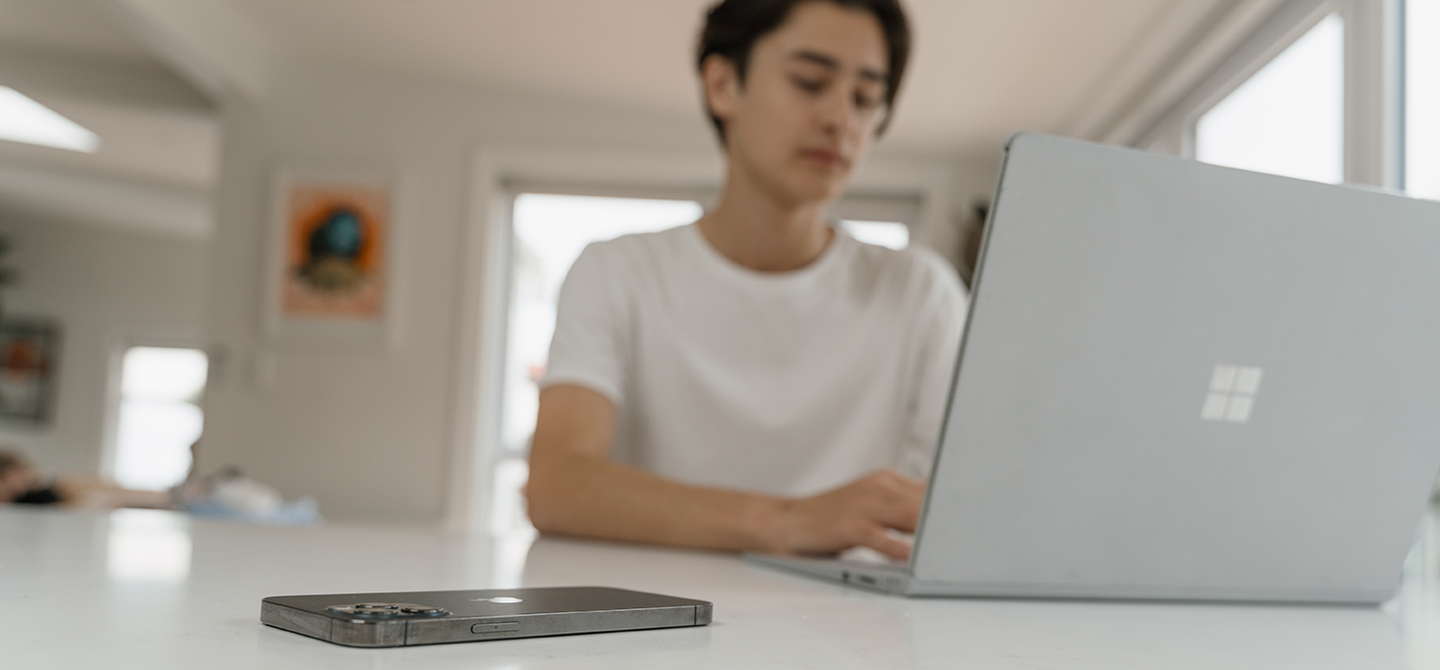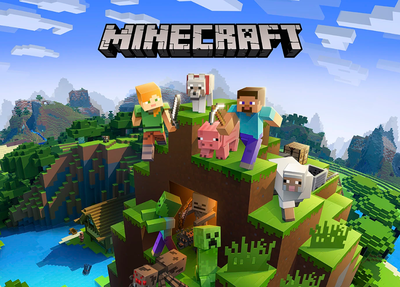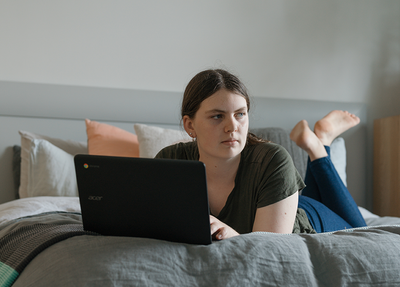
Watch with caution: wellbeing at home and at work
Rebecca on April 8, 2025
When you watch challenging content for entertainment or for work how do you keep yourself safe from harm?
The final season of The Handmaid’s Tale is here. Every season of the dystopian nightmare drama based on the book by Margaret Atwood ratchets up the tension. It’s one to watch knowing that you’re going to be stressed — and in my case, likely to cry — during every episode.
As parents of a beautiful, healthy newborn baby my husband and I could barely survive season one. The content was too scary, the horror of a fictional future where fertile women were slaves, and babies were taken from their biological mothers was too much for this new mum. With time I think I’m now ready to return to Gilead and Offred's fight for freedom against the patriarchy. But I know that tuning in to watch six seasons of the show will be a trauma watch. How can I prepare myself?
At the Classification Office our Advisors are watching tough stuff in their daily mahi. Their work requires them to watch distressing difficult content and then consider the classification decision. Not only are they having to watch something, but they also then must write about it and consider it in detail.
Research has found that some people who spend time working with disturbing material and/or who are indirectly exposed to other people’s trauma are at risk of suffering vicarious or secondary trauma and burnout. Negative impacts can be immediate and cumulative. To support our staff and ensure they stay safe, our Office provides more than an Employee Assistance Programme, we provide an employee support framework that is adaptable for each staff member.
I checked in with our Classification Advisors for some expert advice on staying safe. Here are some rather lovely-sounding mental health breaks that the staff take to handle the job of seeing some of the toughest stuff imaginable:
— Senior Advisor at Te Mana Whakaatu
“In the office when we have to watch something full-on and challenging in the viewing room and I’ll bring in a block of chocolate or sweet treats as a mild form of distraction. It can be grounding and also distances you from what’s on screen. At home my partner and I will have ice-cream or we’ll watch a light-hearted comedy after watching something heavy.”
— Senior Classification Advisor at Te Mana Whakaatu
“I tend to talk with a colleague to debrief then either play a game on my phone or go for a walk. It’s best if there’s some sun I can go stand in. I never talk about this stuff with my partner at home. I like to try to leave it at work.”
“I do the puzzle! We have a puzzle on the go at work. The pattern matching takes your mind off stuff and helps you process.”
Classification Advisor at Te Mana Whakaatu
Te Mana Whakaatu provides a suite of wellbeing options for staff, as we know that it’s not a one-size-fits-all situation for how people manage and handle stress. Our employee support framework has expanded into a wellbeing programme that is run by Umbrella and Gains Psychology and covers a suite of support including counselling, coaching and supervision.
Both organisations are part of New Zealand Health Group (NZHG), one of the largest community-based health delivery providers across the country, and this allows them to draw on psychologists with a range of clinical expertise.
When it comes to entertainment viewing at home, we can equip ourselves for distressing content that we “need” to watch.
Check the rating and content warnings first. One person’s love of horror is another person’s worst nightmare. Had enough of sexual violence as a plot device? Keep an eye out for content warnings such as “sexual violence themes".
Search our Find A Rating tool to read the latest featured decisions. We break down the content warnings to give you more information so you can decide if it's the right watch for you.
Watch with the lights on. Watch with a friend. Talk with friends. Have that block of chocolate nearby for comfort (that’s what the experts do).
If you are watching something that does contain hard-hitting themes and scenes, remember these tools to keep yourself safe.
- If it is trending it doesn’t mean you need to watch it
- Check in with yourself and ask how you are feeling.
- You can take breaks if you need a breather - the movie or series isn’t going anywhere.
- Really not feeling good? Turn it off.
Maybe you watched it earlier that day, that week, that month and you still can’t forget it. Reach out for help. Filmmakers intend to make an impact with what they create but this shouldn’t be at detriment of your mental health. Kōrero with you whānau or friends, and if you are struggling to find someone to chat with text or free call 1737 for support.
Helplines
Further Reading
Are scary films good for anything? (blog)
Learn and Watch, don’t Watch and Learn (the hard way) – ‘Find a Rating’ Tool (blog)
Why are ratings and content warnings important for me and my whānau? (blog)
Subscribe to our blog
Stay up to date with the Classification Office blog.


